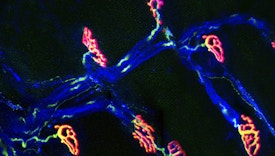
Charles Langley, Ph.D.
Distinguished Professor, University of California, Davis
SFARI Investigator WebsiteCharles Langley’s longstanding research interest and effort have remained the elucidation of the mechanisms and forces that shape genetic variation within and between species. During his career, the application of the concepts and experimental tools of the rapid advancing research in molecular genetics and then genomics have proven a rich source of fundamental answers and exciting new questions.
Much of Langley’s research effort over the last half of his career has been devoted to the advancement of fundamental population genetics to population genomics. For example, Langley has investigated population genomic variation in neurogenic genes of Drosophila as well as theoretical implications of linked selection. He has also advanced the collection and distribution of samples of fully sequenced Drosophila and tree genomes from natural populations. As deep and diverse population genomic resources emerged, Langley’s research interest returned to mechanistic questions of evolutionary and functional genomics, in particular to those inherent to the difficult and underexplored centromeric regions. His conjecture of the existence of centromere-spanning haplotypes (cenhaps) was confirmed by their discovery in both humans and Drosophila in a collaboration with Sasha Langley, Karen Miga and Gary Karpen. Now they have pressed on leveraging the Simons Simplex Collection (SSC) whole-genome sequencing and available Drosophila resources to address critical questions about functional and evolutionary genomics of centromere-proximal regions (fidelity and bias of chromosome transmission, as well as potential impact on disease risk).
